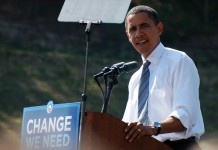House and Senate negotiators signed off Friday on a 2,000-page bill that reforms the nation’s financial regulatory system. It should be on President Barack Obama’s desk by July 4.
While the lawmakers beat back appeals by special interests seeking exemptions from the new rules, the auto dealers came up winners.
Their months of intense lobbying prevailed over pressure from the White House, U.S. Treasury officials and even the Pentagon: They secured a hard-fought exemption from regulation from a new consumer financial watchdog agency.
Consumer advocates and others wanted dealers included under the new agency’s supervision because dealers write $250 billion in car loans annually — nearly 80 percent of all loans — and some may take advantage of car buyers through hidden fees or other improper practices.
But dealers successfully argued — with at least three mass visits to Capitol Hill during the last seven months — that they weren’t to blame for the Wall Street crisis. Giving a new agency power to regulate auto lending could raise costs and prevent consumers from getting loans, they said, adding that laws against deceptive practices already are on state and federal books.
Ed Tonkin, chairman of the National Automobile Dealers Association and a dealer in Portland, Ore., called the decision “a win for consumers.”
“Dealer-assisted financing will continue to provide more convenience, more competition and more choices for car buyers,” Tonkin said. “The goal all along was to keep a new, untested government agency from creating burdensome and unnecessary rules.”
But the Consumer Federation of America said it was disappointed in the decision.
“Current enforcement on auto loans is spread among a number of federal and state agencies and is inconsistent,” said Travis Plunkett, legislative director for the federation. The Consumer Financial Protection Bureau “will be the cop on the beat for lending, and this beat should include auto lending.”
But in a concession, the Federal Trade Commission, which already oversees dealer-assisted financing, was granted expedited rule-writing authority over unfair or deceptive practices — especially for military personnel.
Bailey Wood, a NADA spokesman, said the dealers reluctantly agreed to the concession because “it was the only way to get the exemption.”
Peters: Unnecessary burden
One of those who backed the auto dealers was Rep. Gary Peters, D-Bloomfield Township, who was among the House negotiators. He said the FTC already regulates auto lending and to “put another layer would have been an additional burden on small businesses.”
“You have to stand up for what you believe is right,” said Peters, a first-term House member. “So if I’ve got to stand up against Treasury, or the Pentagon or the White House, I’m willing to do it.”
Obama said the bill contained 90 percent of what he wanted — and that he would sign it, despite the loss on the auto dealer issue.
Exempting auto dealers, Obama argued, “would allow them to inflate rates, insert hidden fees into the fine print of paperwork, and include expensive add-ons that catch purchasers by surprise.”
But dealers carry enormous clout. The Center for Responsive Politics reports that auto dealers have contributed at least $25 million to federal candidates over the past two decades, and often begin financial support of congressional members at the start of their political careers.
There often are dozens of dealers in a congressional district.
More than just giving donations, however, many auto dealers are visible and active in their communities — sponsoring sports teams, lending cars for local parades and participating in community organizations and clubs.
Dealers “are small businesses in all of our communities,” Peters said Friday. They are active “in the Boy Scouts and Girl Scouts and everything else. They are good corporate citizens.”
Another battle won
It isn’t the dealers’ first victory over the Obama administration.
In December, over the objections of the White House and General Motors Co. and Chrysler Group LLC, Congress overwhelmingly approved a bill to give GM and Chrysler auto dealers the right to binding arbitration to challenge their closings in bankruptcy court.
The law has helped prod GM and Chrysler into restoring more than 700 dealer franchises.


